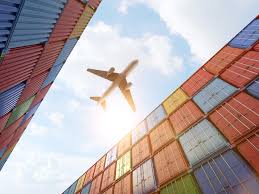소개
최근 면세 범위 변경은 물류 업계, 특히 국경 간 운송 역학에 큰 영향을 미치고 있습니다. 물류 환경이 변화함에 따라 이러한 변화의 영향을 이해하는 것은 기업과 물류 제공업체 모두에게 매우 중요합니다.
Understanding the De Minimis Exemption
소액 면세 제도는 특정 상품, 즉 $800 미만의 가치를 가진 상품에 대해 미국 내 무관세 반입을 허용합니다. 그러나 업계 전문가들은 중국과 홍콩으로부터의 수입에 대해서는 이 면세가 종료되었으며, 이는 항공 화물 부문 전반에 걸쳐 파급 효과를 일으킬 수 있다고 보고 있습니다.
도전과 기회
IMC Logistics의 Brian Kobza에 따르면, 이 면제 조항 폐지는 컨테이너화물 수입 증가를 유도하고 복합 운송 방식의 국경 간 물류 성장을 촉진할 가능성이 높습니다. Kobza는 규정 변경으로 인해 소화물 운송 이용이 감소함에 따라 컨테이너 사용이 크게 증가할 것으로 전망했습니다.
투자 및 전략적 움직임
국경 간 물류 수요가 증가함에 따라 IMC Logistics와 같은 기업들은 캘리포니아 및 텍사스와 같은 주요 지역에서 운영을 강화하기 위해 투자하고 있습니다. 이러한 전략적 투자는 고객 관심의 현저한 증가에 대한 대응입니다. 그러나 국경 통과와 관련된 더 높은 책임 위험으로 인해 추가적인 안전 및 보안 조치가 필요합니다. 결과적으로 트럭 운송 및 복합 운송 회사는 2027년 7월 1일에 예정된 미미한 수준 규칙의 완전한 폐지 이전에 투자를 늘려야 할 수도 있습니다.
항공 화물 및 전자 상거래에 미치는 영향
항공 화물 시장은 이러한 변화로 인해 상당한 어려움에 직면하고 있습니다. 이전에는 미국행 전자 상거래 화물의 약 75%가 중국과 홍콩에서 왔지만, 이제 공급업체들은 공급원을 다각화하려고 노력하고 있습니다. 이러한 변화는 공급망에 영향을 미칠 뿐만 아니라 항공 화물 운송업체가 용량을 배분하는 방식에도 영향을 미칩니다.
적응을 위한 전략
화주들은 이러한 변화의 영향에 대처하기 위해 다양한 전략을 모색하고 있습니다. 공급업체 네트워크 강화, 자유무역지대 또는 보세 창고 활용 등이 그 효과를 완화하기 위해 사용되는 접근 방식 중 일부입니다. 이러한 개혁은 물류 효율성을 유지하는 데 있어 새로운 기회와 과제를 제시합니다.
향후 전망: 물류 예측
헤드라인은 어려운 상황을 그릴 수 있지만, 물류 내 특정 부문에는 긍정적인 측면도 있습니다. 국내 생산과 현지화에 대한 집중은 공급망의 회복력을 키울 수 있습니다. 이러한 변화를 통해 물류 회사는 규제 변화에 맞춰 운영을 개선할 수 있습니다. 전문가들은 무역 규정에 대한 명확성을 확보하는 것이 고객에게 도움이 된다고 강조합니다. 이를 통해 고객은 국제 소스에 의존하는 것보다 현지 생산의 타당성을 평가할 수 있습니다.
GetTransport.com의 변화하는 환경에서의 역할
물류 환경이 변화함에 따라 GetTransport.com과 같은 플랫폼은 저렴한 글로벌 화물 운송 솔루션을 제공하는 데 매우 중요합니다. 사무실 이전, 화물 배송 또는 부피가 큰 물품 이동 등, 이러한 전환기에 편리함과 안정성을 보장합니다.
최종 생각
소액 면세 면제와 관련된 변화는 의심할 여지 없이 물류 역학을 재편합니다. 항공 화물 부문과 전자 상거래에 제기되는 어려움은 벅찰 수 있지만 혁신과 성장의 기회도 창출합니다. 이러한 변화를 파악하고 GetTransport.com에서 제공하는 것과 같은 서비스를 활용하면 진화하는 시장에서 기업이 유리한 위치를 확보할 수 있습니다.
주요 인사이트 요약
소액 면세 폐지는 단순한 헤드라인 그 이상입니다. 이는 물류의 미래에 영향을 미치는 중대한 변화입니다. 문제점을 야기하지만, 기업과 물류 제공업체의 적응을 장려하기도 합니다. 이러한 변화 속에서 기업들이 길을 찾으면서, 안정적이고 효율적인 운송 방식에 대한 필요성이 그 어느 때보다 커졌습니다.
물류는 까다로울 수 있지만, GetTransport.com과 같은 플랫폼을 통해 이러한 변화를 보다 쉽게 관리할 수 있습니다. 화물 및 배송부터 부피가 큰 상품 운송에 이르기까지 신뢰할 수 있는 파트너가 있으면 물류 프로세스를 간소화하는 데 도움이 됩니다. 이 서비스는 운영을 단순화할 뿐만 아니라 투명성과 비용 효율성을 제공하여 오늘날 시장에서 매우 중요합니다. 가능한 최고의 제안을 받으려면 GetTransport.com에서 화물 운송을 예약하는 것을 고려해 보십시오.

 The Impact of De Minimis Exemption Changes on Intermodal Cross-Border Logistics">
The Impact of De Minimis Exemption Changes on Intermodal Cross-Border Logistics">